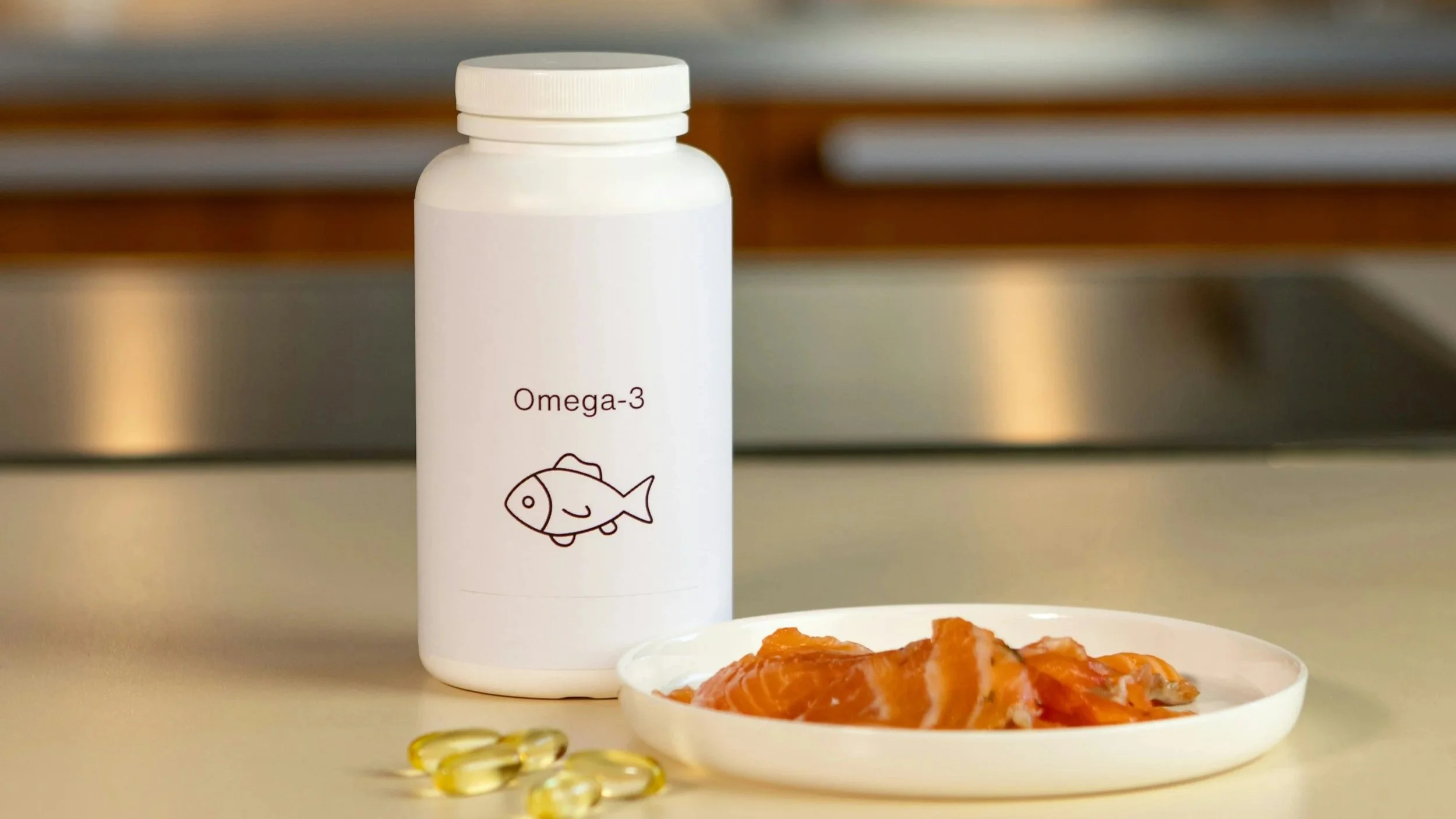The Power Trio, Part 3: Why Omega-3s Are Essential for Everyone - Especially Women in Menopause
Welcome to Part 3 of Our Power Trio Series
If you’ve been following along in this series, you’ll know we’ve been spotlighting the three most recommended, researched, and reliable supplements for supporting women through menopause and beyond. So far, we’ve covered:
✅ Magnesium – your go-to for calm, sleep, and steady energy
✅ Vitamin D3 + K2 – your dynamic duo for bones, mood, and immunity
Now it’s time for the final star in our “Power Trio”: Omega-3 fatty acids.
While most of us think of fats as something to avoid, Omega-3s are anti-inflammatory superheroes - the kind your brain, joints, and hormones actually love. They’re essential nutrients that your body can’t produce on its own, so you need to get them from food or supplements. And during menopause, when inflammation rises and estrogen falls, their impact becomes even more important.
Here’s why.
Why Omega-3s Matter in Menopause (and Always)
During perimenopause and postmenopause, your body is shifting in major ways:
Estrogen is declining
Mood may feel unpredictable
Joints might ache out of nowhere
Skin and eyes feel drier
And your heart health becomes more of a priority
Here’s where Omega-3s come in. These healthy fats are proven to help:
Boost brain function and lift mood
Reduce joint pain and inflammation
Support cardiovascular health
Ease dry skin and vaginal dryness
Calm inflammation and protect against chronic disease
The 3 Types of Omega-3s And Why Two Matter Most
There are three main types of Omega-3 fatty acids:
Type 1: ALA (Alpha-linolenic acid)
Found in: Flaxseeds, chia seeds, walnuts
Role: A plant-based precursor, converted into EPA/DHA in small amounts
Type 2: EPA (Eicosapentaenoic acid)
Found in: Oily fish, fish oil, algae oil
Role: Anti-inflammatory and protective for mood, heart, joints
Type 3: DHA (Docosahexaenoic acid)
Found in: Oily fish, fish oil, algae oil
Role: Vital for brain, memory, cognition, and hormone balance
While ALA is easier to get from plants, the real heavy hitters in menopause are EPA and DHA and those are found mainly in marine sources.
That’s why food AND supplementation can both play a role.
Where to Get Omega-3s From Food
If you’d prefer to start with your plate (as we always recommend at Hello Mimi), here are your best food-based sources:
Oily Fish
Wild-caught salmon
Mackerel
Sardines
Anchovies
Herring
➡️ Aim for 2–3 servings per week
Plant-Based Sources (ALA)
Chia seeds
Ground flaxseeds
Walnuts
Hemp seeds
Seaweed and algae
➡️ These are excellent, but remember: ALA only partially converts to EPA/DHA in the body so supplementing may still be helpful.
Bonus tip: Add ground flax to your smoothies or sprinkle chia on porridge to get an extra boost!
Why Supplement Omega-3s?
Even with a great diet, it’s hard to reach therapeutic levels of EPA + DHA - especially during menopause, when inflammation is higher and hormone regulation is more delicate.
Here’s where high-quality Omega-3 supplements can step in:
Help balance mood and reduce brain fog
Ease joint stiffness and improve flexibility
Reduce triglycerides and support blood pressure
Alleviate dry eyes and vaginal dryness
Provide anti-inflammatory support during hormone shifts
Clean Supplements Matter - Especially Now
You’ve heard us say it before, but we’ll say it again: not all supplements are created equal.
When shopping for Omega-3s, check that your supplement is:
✅ Free from synthetic fillers, flavourings, and binders
✅ Third-party tested for purity and heavy metals
✅ Sustainably sourced (look for MSC or IFOS certifications)
✅ Clearly labelled with EPA + DHA amounts
✅ Made from fish oil or algae oil (if you’re plant-based)
Many women in menopause are already dealing with gut sensitivity, detox overload, or histamine issues so keep it clean, simple, and trusted.
Supplements: They’re Not Magic, But They Can Be a Mighty Support
At Hello Mimi, we always remind women: supplements do exactly what their name suggests - they supplement your lifestyle. They’re not a quick fix. But paired with the 4 pillars of Hello Mimi’s whole-body approach: nutrition, movement, sleep, and stress regulation, they can help your body feel balanced and resilient.
A Final Word
While Omega-3s are a powerful part of midlife support, they’re beneficial at any age. Whether you’re 30, 50, or 70, your brain, heart, and hormones all benefit from having these essential fats in your life.
Some interesting research on the benefits of Omega-3:
At Hello Mimi, we’re here to support and empower you with education, encouragement, and practical tools but we’re not a substitute for personalised medical advice. The information in this blog is for general guidance only. Always consult a qualified healthcare provider before making changes to your health, diet, or supplements especially if you're managing a condition or taking medication.

